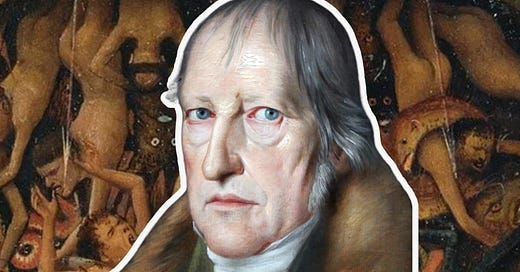In Hegel’s Phenomenology of Spirit, the driving force behind the dialectical progression of Spirit is the subject’s misrecognition of the truth. In each phase, the subject identifies the truth with a given thing, idea, or value, and in each case, it is revealed that that which was identified fails to meet the standards of absolute truth. Hegel does not measure each conception of the truth with some objective/absolute standard (as, until the end of the book, there is none). Rather he engages in an immanent critique of each one, showing how none (aside from Absolute Knowing, of course) are what they claim to be.
The simplest example is the dialectic of sense-certainty, which also happens to be (not by coincidence) the first one. The subject of sense-certainty claims that the truth is what is immediately present to his senses as the “here” and “now” (let us take a tree as an example). However, as soon as he turns around, he no longer sees a tree but a house, which becomes the new “here” and “now.” Since (absolute) truth is not subject to negation, the “here’s” and “now’s” discovered by sense certainty cannot be the (absolute) truth. Hegel will then negate the negation via the same immanent critique, and this movement is Hegelian dialectics.
Keep reading with a 7-day free trial
Subscribe to telosbound to keep reading this post and get 7 days of free access to the full post archives.



